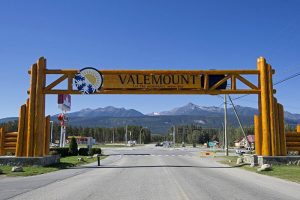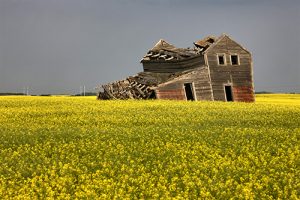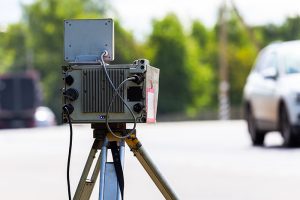No money for uninsured N.W.T. residents to rebuild
Ollie Williams and Simona Rosenfield,
Local Journalism Initiative Reporter
Dozens of Enterprise residents whose homes weren’t insured when they burned in last year’s wildfire have been told they won’t receive financial help to rebuild.
Residents were told at a meeting last week, nine months after a fire ripped through the tiny Northwest Territories hamlet.
Minister Vince McKay said the Department of Municipal and Community Affairs had “worked hard to try to exhaust all avenues, to get the residents some kind of support, some way to try to rebuild,” but had come up with nothing.
“Unfortunately, it got to the point where we had to deliver the news that we couldn’t find any other sources to get them rebuilt,” he told Cabin Radio.
Residents who attended the meeting described seeing counsellors and RCMP officers as they walked in.
“I just knew it wasn’t going to be good,” said Michael Zak Kimble, who grew up in Enterprise and lived there with his family prior to last year’s fire.
Describing the meeting as a short one, Kimble said he could not stay for more than a couple of questions from residents as his anger overcame him.
“I had to just get up and walk away. There was no point listening,” he said. “I was so angry and frustrated, I had to leave.”
Insurance questions
Some residents say that anger stems from a feeling that promises were made but not kept.
One meeting attendee, who asked for anonymity to discuss a sensitive situation, said their original understanding from ministers was that an existing disaster assistance program could cover uninsured families. They were asked to provide information about the availability of insurance as the process unfolded.
Residents in smaller N.W.T. communities have described circumstances in which insurance companies have either declined to insure their property or quoted sums for insurance that residents could not pay.
McKay said last week that affordability was “the big thing,” adding he was “sure some of it’s pretty excessive right now, with the way things are going.”
But how you document an inability to access insurance to the satisfaction of a government is unclear.
“How do you go about proving that you were denied insurance? If the insurance isn’t willing to give you a letter saying ‘we denied insurance,’ then you have no proof of denial of insurance,” the meeting attendee said.
“From personal experience, they don’t do that. They won’t do that.”
Still, residents persevered as they had concluded from government statements that if disaster assistance wasn’t for insured families – who had insurance companies to work with – then disaster assistance must be meant to financially assist the uninsured.
Another resident recalled a minister promising that the money saved by not holding a public inquiry into last year’s fires could be redirected to “the people who need it.”
“From the word go, the people that were supposed to benefit from this were the uninsured,” said Kimble. “And now, essentially, they turned around and said, ‘Oh, because you weren’t insured, you’re getting no help.'”
“The big message is everybody should try to get insurance,” said McKay. “If you can’t, at least attempt to get insurance and get a letter or something indicating that you couldn’t get it because of affordability or anything like that … or even have the quote with you.”
What have governments done?
Between Enterprise and Hay River, McKay – a Hay River MLA – says the territorial government has been dealing with 43 uninsured properties.
He said he had pushed his department, Maca, “as hard as I could” to find a way to financially help people without insurance.
“We went to every avenue. We beat down every corner to see where we could get funding. We did federal, we even exhausted all avenues territorially to see what we could do,” McKay said.
“Using both policies, federally and territorially, we’re trying to apply them as fairly and equitably as we can without getting too out of line. It’s definitely difficult. We’ve tried everything we can. I definitely put a little bit more into it, maybe, because of them being neighbours, but this is the result that we got to.”
According to Kimble, residents at the meeting were told they were denied assistance in part because “the federal government said there was insurance available, that we should have had insurance, and that’s why we’re not being helped.”
Joanna Kanga, a spokesperson for federal emergency preparedness minister Harjit Sajjan, confirmed that “the cost to build a new home if uninsured is not eligible to be cost-shared” under the applicable disaster assistance program.
However, Kanga said the N.W.T. government also has wide latitude in how it uses the disaster assistance program to cover the costs of a disaster.
“All decisions regarding financial assistance to individuals, small businesses and local governments affected by the fire are taken by GNWT,” she said, adding that the territory had still not told the federal government whether it will use federal support to cover temporary housing costs, which – unlike building a new home – are covered through disaster assistance.
“In March, we communicated with the territory to confirm that federal support available under the DFAA for temporary housing was still available as requested,” said Kanga, using an initialism for the program, known as Disaster Financial Assistance Arrangements.
“That funding could have supported and helped providing temporary housing for vulnerable evacuees and their families, regardless of question of insurance, until a permanent solution is identified by the territory. The territory has not indicated whether they will move forward with this option.”
“We remain committed to support N.W.T.’s recovery as we have been since the very beginning,” she concluded.
McKay said Maca has “done a lot” to help Enterprise, even if it could not find money to help uninsured residents.
“It may not seem that way,” he said, “but with the federal disaster assistance arrangements, we were able to clean up a lot of the residential lots, work on them and get rid of hazardous waste and stuff that wouldn’t normally be done – it would be done through an individual’s personal insurance.
“The department and the governments felt that we need to work with Enterprise to get Enterprise prepared for more homes, hopefully, and redeveloped.”
Whether to stay
Who will build and live in those homes is an open question.
“A lot of people will not be rebuilding. They won’t be able to. They’re either at retirement age or older, and they don’t have the income in order to afford to buy a new house,” said one resident with knowledge of last week’s meeting.
“Right now, I don’t think anybody can afford the insurance that is going to be offered around here. I’ve already heard stories of insurance doubling here.”
Kimble doesn’t know if he’ll stay.
“There are already people that have just made up their minds and left, they’re not coming back,” he said.
“We’re still kind-of on the fence. We’re wobbling back and forth. Should we rebuild or should we just take off?
“The hard thing about that is, in light of all this, it’s a huge financial loss in a lot of ways. We can’t really just up and leave.”
McKay knows some people have already left Enterprise but he hopes others choose to stay, despite last week’s news.
“We’d like residents to stay and we’ll try to take care of them as much as we can,” the minister said.
“We can’t force anybody to stay and whatever decision they make is up to them.
“I just want to say to the community that I feel their frustration and hopefully at some point, some way, we can find other avenues to assist them.”
Kimble, though, feels let down by politicians who he does not believe advocated for the hamlet and its residents.
“You guys are the reason I lost my home,” he said. “They’re not here for the people, and the proof is in the pudding. They just do not care about Enterprise.”
Ollie Williams and Simona Rosenfield,
Local Journalism Initiative Reporter
Cabin Radio


